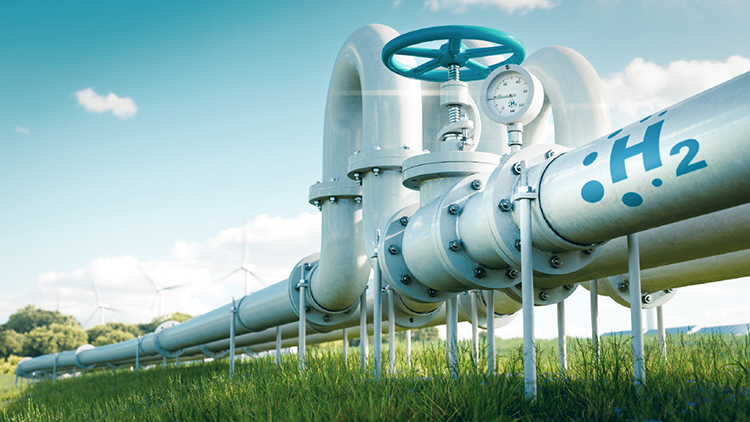On August 15th 2024, Egypt embarked on a transformative journey by launching its National Low Carbon Hydrogen Strategy, a comprehensive blueprint aimed at positioning the country as a leader in the global hydrogen economy. This strategy, targeting up to 8% of the tradable hydrogen market by 2040, is not merely a technical or industrial initiative but a policy-driven endeavor. It is deeply rooted in establishing robust legal frameworks, progressive policies, and attractive incentives—elements crucial for fostering investment, driving innovation, and ensuring successful implementation.
A stable and conducive regulatory environment is fundamental to the success of Egypt’s hydrogen strategy. Without clear and well-defined legal structures, the ambitious targets set by the strategy would be difficult to achieve. The Egyptian government recognizes this necessity and is expected to develop a comprehensive legal framework addressing all aspects of hydrogen production, storage, distribution, and use. Regulatory certainty, which includes the establishment of consistent laws and standards for safety, environmental impact, and quality, is essential for attracting both domestic and international investors. This framework will not only facilitate the growth of Egypt’s hydrogen sector but also ensure that Egyptian hydrogen products meet international benchmarks, making them competitive in the global market.
In addition to regulatory certainty, the government must streamline the permitting processes for hydrogen projects. Complexity and lengthy processes often hinder the development of new industries. Simplifying and expediting these processes by creating a one-stop shop for all hydrogen-related permits can remove unnecessary obstacles that delay project implementation. Such a system would be particularly beneficial for attracting foreign investors who seek predictable and business-friendly regulatory environments.
Public-private partnerships (PPP) are another critical component of the legal framework, providing a proven model for infrastructure development and large-scale industrial projects. These partnerships allow for the sharing of risks and rewards between the government and private sector, making it easier to undertake capital-intensive projects like hydrogen production and distribution. Egypt’s legal framework must include provisions that make it attractive for private companies to engage in these partnerships, offering legal guarantees and protections to ensure that private partners understand their rights and obligations under Egyptian law.
Alongside these legal frameworks, the Egyptian government is expected to roll out a series of policy initiatives essential for the hydrogen sector’s development. These policies will create an environment that supports and accelerates the growth of hydrogen production, particularly green hydrogen, which is central to Egypt’s future energy plans. Given the high costs associated with green hydrogen production, the government is likely to provide incentives, such as subsidies or tax breaks, to companies investing in renewable energy technologies. By reducing financial burdens, these incentives will encourage more market participants, driving competition and gradually lowering costs.
Government support for research and development (R&D) in hydrogen technology will also be crucial. Innovation is key to making hydrogen production more efficient and less costly. By offering grants for R&D activities, the government can help accelerate technological advancements, benefiting the entire sector. Additionally, policy efforts will focus on market development, both domestically and internationally. Domestically, policies might mandate the use of hydrogen in sectors such as steel production and transportation, where it serves as a clean alternative to traditional energy sources. Internationally, Egypt’s strategic location and proximity to Europe position the country as a potential key exporter of low-carbon hydrogen. The government could pursue trade agreements and export incentives to facilitate Egyptian hydrogen’s entry into European markets, harmonizing standards with the European Union to ensure competitiveness.
Infrastructure development is another critical area where government policy will be essential. The hydrogen economy requires robust infrastructure, including production facilities, pipelines for transportation, and refueling stations for hydrogen-powered vehicles. Building this infrastructure is a massive undertaking that will require significant investment. The government can play a key role by either directly investing in these projects or offering incentives for private sector participation, such as financial support or tax relief for companies that build and operate hydrogen infrastructure.
Attracting the estimated $60 billion in investment needed to achieve Egypt’s hydrogen ambitions will require a competitive package of incentives. Tax incentives, such as reductions or exemptions on corporate taxes for companies investing in hydrogen projects, particularly in green hydrogen, will be a key component. These incentives will make it more financially attractive for companies to enter the hydrogen market, accelerating the sector’s development. Additionally, the government could provide subsidies and grants to support hydrogen production facilities, especially during the early stages, helping offset the high initial costs and ensuring the economic viability of these projects.
Export incentives will also be crucial in attracting investment, particularly for companies producing hydrogen for export to key markets like Europe. These could include reduced export duties, logistical support for transporting hydrogen, or even preferential access to international markets through trade agreements.
However, Egypt’s hydrogen strategy faces challenges, particularly regarding water scarcity and global competition. Effective policy responses will be essential to overcome these obstacles. Promoting the use of desalinated water and advanced wastewater treatment technologies in hydrogen production is crucial to ensure that hydrogen production does not exacerbate Egypt’s existing water stress.
Furthermore, innovation and efficiency are critical to maintaining Egypt’s competitive edge. The government can support these objectives by providing incentives for R&D in hydrogen technologies, fostering a culture of innovation that ensures Egypt remains at the forefront of the global hydrogen industry.
Egypt’s National Low Carbon Hydrogen Strategy is a visionary blueprint designed to transform the country’s energy landscape. The potential rewards—economic growth, job creation, energy security, and environmental sustainability—are substantial. However, the strategy’s success will largely depend on the government’s ability to implement and maintain robust legal frameworks, forward-looking policies, and competitive incentives. With careful implementation and continuous adaptation to global market conditions, Egypt can realize its hydrogen ambitions and set a powerful example for sustainable development in the region and beyond.
By Mohamed Atia
Process Engineer, Egyptian Refining Company








